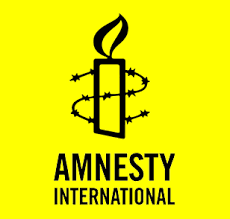EXECUTIVE SUMMARY
Halfway into the six-month state of emergency the Ethiopian government declared on 9 October 2016, this is a commentary on the State of Emergency Declaration and the Directive for the Implementation of the Declaration. The commentary analyses the State of Emergency Declaration against established human rights norms provided for in the International Covenant for Civil and Political Rights and the African Charter on Human and Peoples’ Rights. These norms include: notification to the United Nations Secretary General; legality; non-derogable rights; necessity; and proportionality.
The commentary finds that some of the measures and restrictions in the State of Emergency Declaration and its implementation directive fail to comply with international and regional human rights norms. Specifically, the Ethiopian government failed to notify the UN Secretary General of the fact that Ethiopia has declared a state of emergency, the exigencies that required the state of emergency and the measures and restrictions imposed under the state of emergency declaration. The State of Emergency Declaration also violated all elements of the principle of legality since the Ethiopian government failed to avail the official text of the State of Emergency Declaration in an accessible form, the measures and restrictions it imposes lack clarity and precision and its punishment measures are applicable retroactively.
In addition, the measures and restrictions in the State of Emergency Declaration violate, directly or indirectly, non-derogable rights such as freedom from torture and other ill-treatment and freedom from non-retroactive application of criminal laws. The geographic expanse of the state of emergency, covering as it does the whole country, violates the requirement that restrictions under a state of emergency shall be necessary and proportionate to the exigencies that required the state of emergency. Finally, the commentary proposes actionable recommendations for the Government of Ethiopia to address the inconsistencies of the State of Emergency Declaration with international and regional human rights treaties.
These include: revision of the state of emergency to comply with Ethiopia’s international and regional human rights obligations regarding notification, legality, necessity and proportionality. The commentary additionally calls for the establishment of an independent and impartial body to oversee, monitor and publicly report on implementation of the State of Emergency Declaration. 1. BACKGROUND There have been almost continuous protests in parts of Ethiopia since November 2015. The protests, which began in Oromia Region in November 2015, were initially in response to government plans to extend the capital, Addis Ababa, into Oromia. The government announced the cancellation of the Addis Ababa ‘Master Plan’ in January 2016, but by then the protesters’ demands had evolved to include release of prisoners of conscience, administrative autonomy of the Region, 1 and political and economic justice. Protests in Amhara Region began in August 2016 against arbitrary detention and demanding the self-determination of the ethnic Amhara community in neighbouring Tigray Region.
Tensions in Oromia and Amhara Regions escalated following a stampede during the Irrecha festival2 on 2 October 2016 that resulted in the death of at least 55 people. The cause of the stampede and the number of casualties are contested. The government blames ‘anti-peace’ protestors for triggering the stampede, while Oromo activists claim that government security forces triggered it when they fired tear gas canisters and shot live ammunition into the crowd. Subsequently, fresh protests broke out in a number of locations in Oromia Region during the ‘week of rage’ declared by Oromo activists. Some protests became violent as protesters attacked foreign and local businesses, farms and vehicles, especially those near Addis Ababa. The Ethiopian government also alleges that the protestors attacked and killed security forces in some districts of Oromia Region.
There were also peaceful protests in parts of Amhara region following the Irrecha stampede. The Ethiopian government declared a state of emergency on 9 October 2016 in response to the protests. 3 The State of Emergency Declaration outlines broad restrictions on a range of human rights, including non-derogable rights such as the prohibition on the retroactive application of criminal law; and the prohibition of torture and other ill-treatment, as well as fundamental requirements of fair trial. 4 Government security forces arrested tens of thousands of people in Amhara Region, Oromia
























